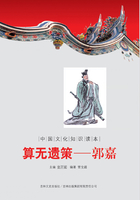Former times had chastised them with whips, but this chastised them with scorpions. Of course, Barton had his share of mere bodily sufferings. Before he had gone up to London on his vain errand, he had been working short time. But in the hopes of speedy redress by means of the interference of Parliament, he had thrown up his place; and now, when he asked leave to resume his work he was told they were diminishing their number of hands every week, and he was made aware, by the remarks of fellow-workmen, that a Chartist delegate, and a leading member of a trades' union, was not likely to be favoured in his search after employment. Still he tried to keep up a brave heart concerning himself. He knew he could bear hunger; for that power of endurance had been called forth when he was a little child, and had seen his mother hide her daily morsel to share it among her children, and when he, being the eldest, had told the noble lie, that "he was not hungry, could not eat a bit more, in order to imitate his mother's bravery, and still the sharp wail of the younger infants. Mary, too, was secure of two meals a day at Miss Simmonds'; though, by the way, the dressmaker too, feeling the effect of bad times, had left off giving tea to her apprentices, setting them the example of long abstinence by putting off her own meal till work was done for the night, however late that might be. But the rent! It was half-a-crown a week--nearly all Mary's earnings--and much less room might do for them, only two.--(Now came the time to be thankful that the early dead were saved from the evil to come).--The agricultural labourer generally has strong local attachments; but they are far less common, almost obliterated, among the inhabitants of a town. Still there are exceptions, and Barton formed one. He had removed to his resent house just after the last bad times, when little Tom had sickened and died. He had then thought the bustle of a removal would give his poor stunned wife something to do, and he had taken more interest in the details of the proceeding than he otherwise would have done, in the hope of calling her forth to action again. So he seemed to know every brass-headed nail driven up for her convenience. Only one had been displaced. It was Esther's bonnet nail, which in his deep revengeful anger against her, after his wife's death, he had torn out of the wall, and cast into the street. It would be hard work to leave the house, which yet seemed hallowed by his wife's presence in the happy days of old. But he was a law unto himself, though sometimes a bad, fierce law; and he resolved to give the rent-collector notice, and look out for a cheaper abode, and tell Mary they must flit. Poor Mary! she loved the house, too. It was wrenching up her natural feelings of home, for it would be long before the fibres of her heart would gather themselves about another place. This trial was spared. The collector (of himself), on the very Monday, when Barton planned to give him notice of his intention to leave, lowered the rent three-pence a week, just enough to make Barton compromise and agree to stay on a little longer. But by degrees the house was stripped of all its little ornaments. Some were broken; and the odd twopences and threepences, wanted to pay for their repairs, were required for the far sterner necessity of food. And by-and-by Mary began to part with other superfluities at the pawn-shop. The smart tea-tray, and tea-caddy, long and carefully kept, went for bread for her father. He did not ask for it, or complain, but she saw hunger in his shrunk, fierce, animal look. Then the blankets went, for it was summer time, and they could spare them; and their sale made a fund, which Mary fancied would last till better times came. But it was soon all gone; and then she looked around the room to crib it of its few remaining ornaments. To all these proceedings her father said never a word. If he fasted, or feasted (after the sale of some article) on an unusual 'meal of bread and cheese, he took all with a sullen indifference, which depressed Mary's heart. She often wished be would apply for relief from the Guardians' relieving office; often wondered the trades' union did nothing for him. Once, when she asked him as he sat, grimed, unshaven, and gaunt, after a day's fasting, over the fire, why he did not get relief from the town, he turned round, with grim wrath, and said, "I don't want money, child! D--n their charity and their money! I want work and it is my right. I want work." He would bear it all, he said to himself. And he did bear it, but not meekly; that was too much to expect. Real meekness of character is called out by experience of kindness. And few had been kind to him. Yet through it all, with stern determination he refused the assistance his trades' union would have given him. It had not much to give, but, with worldly wisdom, thought it better to propitiate an active, useful member, than to help those who were unenergetic, though they had large families to provide for. Not so thought John Barton. With him, need was right. "Give it to Tom Darbyshire," he said. "He's more claim on it than me, for he's more need of it, with his seven children." Now Tom Darbyshire was, in his listless, grumbling way, a backbiting enemy of John Barton's. And he knew it; but he was not to be influenced by that in a matter like this. Mary went early to her work; but her cheery laugh over it was now missed by the other girls. Her mind wandered over the present distress, and then settled, as she stitched, on the visions of the future, where yet her thoughts dwelt more on the circumstances of ease, and the pomps and vanities awaiting her, than on the lover with whom she was to share them. Still she was not insensible to the pride of having attracted one so far above herself in station; not insensible to the secret pleasure of knowing that he, whom so many admired, had often said he would give any thing for one of her sweet smiles. Her love for him was a bubble, blown out of vanity; but it looked very real and very bright. Sally Leadbitter, meanwhile, keenly observed the signs of the times; she found out that Mary had begun to affix a stern value to money as the "Purchaser of Life," and many girls had been dazzled and lured by gold, even without the betraying love which she believed to exist in Mary's heart. So she urged young Mr Carson, by representations of the want she was sure surrounded Mary, to bring matters more to a point.
同类推荐
热门推荐
丑女重生:秦少请住手
程思璇心中一直有个疑惑,在那场自杀中,秦然为什么会救下素昧平生的她?以天神的姿态,助她涅槃重生。以守护者的身份,保她一世平安。当她摘下丑陋至极的人皮面具,跨进这步步旋涡中,不禁迷失了自己。深陷谜团,缘起缘灭,究竟,是谁先导演了这场戏?当爱情与恨意相互碰撞,处心积虑,步步为营,最终是谁改变了谁?和爱豆上了热搜
情景一:某天,圈内年仅27岁最年轻的影帝纪白又上了热搜,一群吃瓜群众习以为常像纪白这种娱乐圈不可多得的实力顶流,随随便便什么事儿都能上热搜不明真相的吃瓜群众点进去一看“影帝纪白疑似恋情曝光”????不是说纪影帝不近女色的吗?那图片上那个公主抱抱着一个女孩子的是谁?“呜呜呜,我老公怎么就出轨了呢……”“哇,我老公怎么能喜欢上别人呢?”几千万的粉丝吵得不可开交,当事人出来发了个微博,言简意赅的两个字:助理情景二:纪影帝又上了热搜,情况与上次一样,吃瓜群众一脸无语,上次也恋情曝光,这次又曝光然后看到视频里那个把那个被称为助理的小姑娘按在墙上又亲又哄的纪影帝,众人一脸懵……这……真的是纪影帝???“老公,你不是说了是你助理吗?呜呜呜……”“老公啊,你真的忘记大明湖畔的你老婆了吗?”纪影帝转发了上次发的助理的那条微博,重新配文案:我老婆于是,热搜话题变成了——纪影帝英年早婚















